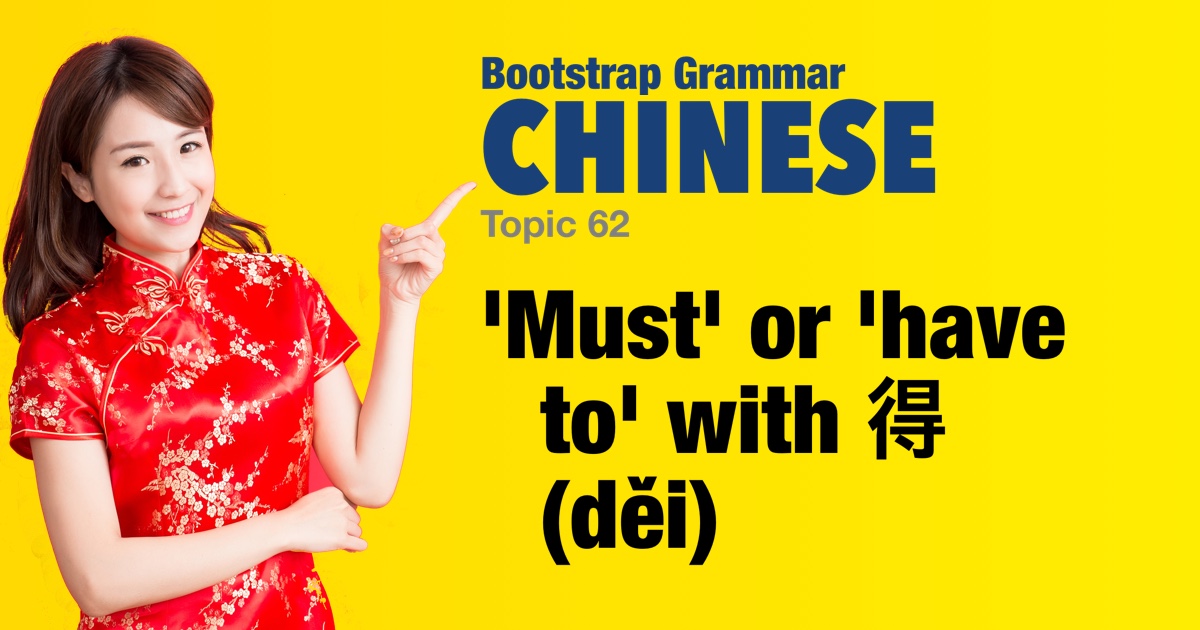Chinese grammar - 'Must' or 'have to' with 得 (děi) |
|||
|
|||
The auxiliary verb 得 (děi) conveys necessity or obligation. — The equivalent in English is 'must' or 'have to'. The pattern is [subject] + 得 + [verb] + [object] Prohibition can be expressed using 不得 (bùdé) as illustrated in the next topic. Note that 要 focuses more on intention or plan, while 得 emphasizes obligation or necessity. |
| Examples: | |
|
我得学中文。
wǒ děi xué zhōngwén. I must learn Chinese. |
|
|
他得从家里拿东西。
tā děi cóng jiālǐ ná dōngxī. He must take things from home. |
|
|
你得赶来这里帮忙。
nǐ děi gǎn lái zhèlǐ bāngmáng. You must hurry (come) here to help. |
|
|
你得从公司带东西回来。
nǐ děi cóng gōngsī dài dōngxī huílái. You must bring things back from the company.
|
|
|
她得进来拿她的包。
tā děi jìnlái ná tā de bāo. She must come in to get her bag. |
|
|
他得出去接朋友。
tā děi chūqù jiē péngyǒu. He must go out to pick up his friend.
|
|
|
她得进来找她的手机。
tā děi jìnlái zhǎo tā de shǒujī. She must come in to find her phone. |
|
|
我得回去拿作业。
wǒ děi huíqù ná zuòyè. I must go back to get my homework. |
|
|
你得从家里出来吃饭。
nǐ děi cóng jiālǐ chūlái chīfàn. You must come out from home to eat.
|
|
|
你得进来坐下。
nǐ děi jìnlái zuòxià. You must come in and sit (down).
|
|
|
他得吃两碗米饭。
tā děi chī liǎng wǎn mǐfàn. He must eat two bowls of rice. |
|
|
他们得一起去上学。
tāmen děi yìqǐ qù shàngxué. They must go to school together.
|
|
|
不得迟到。
bù dé chídào. Being late is not permitted. |
|
|
我今天不用去学校。
wǒ jīntiān bù yòng qù xuéxiào. I don't have to go to school today. |
|
|
你得告诉老师。
nǐ děi gàosù lǎoshī. You have to tell the teacher. |
|
 |
|



